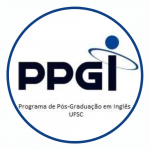Ciclo de Palestras – Leitura e(m) Interfaces: Teorias, Métodos e Aplicações
É com muita alegria que o PPGI e o Núcleo de Estudos em Leitura (NEL) anunciam a terceira palestra do Ciclo “Leitura e(m) Interfaces”. Para o evento do mês de maio, contamos com a participação especial do professor Marcel Just (Carnegie Mellon University – USA) e moderação da professora Cyntia Bailer (NEL-PPGE-FURB). Junte-se a nós neste evento!
The new science of thought imaging: How concepts and knowledge are organized in the brain
Marcel Just (Carnegie Mellon University – USA)
🕤 11/05/2021 – 15h (Horário de Brasília)
Ao vivo no canal do YouTube do PPGI UFSC e Plataforma Zoom.
(Senha de acesso: 504335)
Inscrições: bit.ly/CiclodePalestras2021
BIO
D.O. Hebb Professor of Psychology and Director of the Center for Cognitive Brain Imaging, at Carnegie Mellon University- USA.
His current research develops and tests theories of how we neurally represent individual concepts and larger units of knowledge. The main basic approach applies machine learning and factor analysis to fMRI data. The two applications that are being explored are the use of altered concept representations to identify people with suicidal ideation and the learning of new technical concepts in work and college settings. He is pleased to be part of the rapidly advancing field of cognitive neuroimaging that has repeatedly and deeply enriched the understanding of mind and brain. He also co-developed with Sashank Varma 4CAPS, a cognitive architecture that specifies how different cortical regions of the brain collaborate to perform specific tasks. 4CAPS model have been used to explain behavioral and brain imaging data in different experimental tasks
ABSTRACT
Recent computational techniques, particularly machine learning, are being applied to fMRI brain imaging data, making it possible for the first time to relate patterns of brain activity to specific thoughts. Our work has focused on identifying some of the main underlying neurosemantic dimensions of meaning in a number of knowledge domains, with potential applications to instruction and psychiatry.








